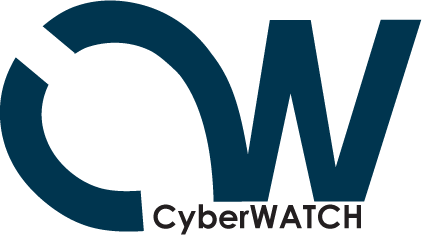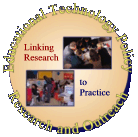| |
 |
NSF CyberWATCH Grant
|
 |
Cool Careers in Cybersecurity
- Workshops
University of Maryland will host the first in a series
of Cool
Careers in Cybersecurity Workshops which
will provide information and skills necessary to navigate
the professional pipeline in the vast fields of Cybersecurity
and Information Assurance as well as other science,
technology, engineering, and mathematics (STEM) fields.
The first workshop will be held Friday April 21, 2006
focusing on Cool Careers in Cybersecurity
for Girls.
The workshop will provide participants with a full
day of speakers, hands-on
activities and campus site visits. 30 middle school
girls will have the opportunity to learn from women
from companies and agencies throughout the state about
what it takes to be a true success in the field. Attention
will be given to issues for women from underrepresented
groups. Despite the gains of the last twenty years in the representation of
women in STEM fields, their numbers still lag behind their male counterparts.
Researchers have found that until third grade an equal number of boys
and girls show interest and feel confident in learning science and technology.
However, these numbers continuously decrease for girls throughout middle
school and into high school. Various explanations for the significant
decrease in girls’ interest in science and technology through
their school years have been posed. Cool Careers in Cybersecurity
Workshops sponsored by Educational Technology Outreach within the College
of Education
draws on research that that indicates recruiting and retaining
girls to the science and technology fields should include targeted programs
to educate women and minorities about STEM career choices.
Many women
and minorities have had limited exposure to computing in grade
school and high school, especially if they come from lower-income households
and communities. A new National Research Council report indicates
that
general Information and Technology Fluency skills and concepts
will also be needed by all citizens if they are to be competitive in
the
modern world. Curricula should provide early exposure to real-world
examples of the content of interest connected to careers. Enrichment
programs should emphasize team projects and diverse real-world
examples of technology applied in content areas. Curricular material
that addresses
major societal and/or environmental problems has been shown
to attract women to the discipline. Mentoring and role models in the
career choices
has also shown success in recruitment and retention.
Workshop 1 Highlights
The opening speaker for the Cool Careers in Cybersecurity
for Girls Workshop will be Vonda
Williams, CISM, CABM,
Director, Information Assurance, Solvern
Innovations, who applies cutting edge technology solutions and
simulations provide objective solutions to critical problems
of importance to national security. Her presentation is
Cool
Careers! Information Assurance [PPT ... PDF]
and All Aboard the Cool Security Express [PPT ... PDF]. Joan
Upole, Executive Officer for a subcommitte of SIGCOM at NSA,
will then discuss Ethics
and Computing which will discuss a variety of both legal and ethical issues
one must consider when participating
online. Ms. Upole will discuss these issues in the context
of what you want to
do, what you think you should do, and what you can be prosecuted
for doing. She will also discuss some of the ways your persona
is identified
online and how that information can be exploited. After
lunch students will visit Trufina,
a small start up company located in the Technology
Advancement Incubator Program on campus
that provides
a web
based application to assure a safer, secure and trustworthy
way to identify yourself to others and for others to truthfully
identify themselves
to you. The girls will then tour the GIS lab in
the Department of Geography to
visit a number of researchers and current research projects.
Girls are recruited through the campus Talent
Search Program.
Funded by the U.S. Department of Education, Talent
Search is designed to provide students with early college awareness
and post secondary opportunities to all students the our
program. This is done through a variety of activities and
workshops that
encourage students to pursue an academically rigorous course
selection. Students participate in a wide variety of college
tours, and leadership
activities to strengthen their motivation and persistence
in school, as well as engage in leisure services so that
they can become well-rounded
students. The program targets youth in families in which
neither parent graduated from college. Female middle school
members of the
Educational Talent Search are individuals who have maintained
a 3.3 or above, have held a consistent "B" average in
math and science, and have good citizenship as described by their
teachers
and counselors. Students stay with their middle school "UMCP
counselor" for 2 years and then move to a "UMCP high school
counselor" for their high school career.
These students will also have the opportunity to participate in additional
workshops over the next four years. Rising juniors and seniors
may also participate in the Young Scholars Program - Students,
Learning, and Technology.
For more information, contact Davina Pruitt- Mentle, Director, Educational
Technology Outreach, College of Education, University of Maryland,
301.405.8202, or send an email to: dpruitt@umd.edu.
For Talent Search information contact Dwayne Ham.
Workshop 2 Highlights
University of Maryland hosted the second in a series of Cool Careers in Cybersecurity Workshops which provided information and skills necessary to navigate the professional pipeline in the vast fields of Cybersecurity and Information Assurance as well as other science, technology, engineering, and mathematics (STEM) fields. The second workshop was held Friday October 6, 2006.The workshop was run in conjunction with the 5th annual Cyberethics, Cybersafety and Cybersecurity (C3) conference. 30 middle school girls and 20 high school students (N: F=11; M=9) participated in a full day session which included hands-on activities, speakers, and an opportunity to talk with professionals in the field. Students had the opportunity to learn more about Cyberethics, security and safety, as well as, learning first hand from IT/IA experts about career opportunities and pathways in Cybersecurity. Attention was given to issues for women from underrepresented groups.
The participants heard from the opening speaker Maryland’s First Lady Kendel S. Ehrlich whose initiatives include working with the iKeepsafe coalition to keep kids safe online and helping promote initiatives highlighting career opportunities in Cybersecurity and other IT fields.. Detective Sergeant Robert Smolek from the Maryland Internet Crimes Against Children Taskforce then discussed computer facilitated crimes against children, with a particular focus on victims, offenders, and those online technologies commonly used to sexually exploit children. Detective Smolek discussed and showed how tools such as digital forensics can help catch criminals. Naomi Lefkovitz from the Division of Privacy and Identity Protection of the Federal Trade Commission presented Deter, Detect, Defend: The FTC's Program on Identity Theft [PPT]. Information Security in Today's World [PPT] Casey O'Brien an Associate Professor and Network Technology Program Coordinator from the Community College of Baltimore County (CCBC) and consortium member, provided students with an overview of: what information security is; the challenges to information security; the latest trends; best practices to help protect your digital assets; the need for Information Security professionals; and CyberWATCH. A luncheon allowed students the time to network with IT/IA professionals. The Keynote LuncheonIntroduction was presented by Liesyl Franz , Department of Homeland Security introducing Keynote presenter Ron Teixeira Executive Director and Alyssa Marlow, Manager of Programs and Communications of the National Cyber Security Alliance who discussed the importance of cybersecurity, and how the education of our youth and public about IT/IA career opportunities is imperative to the future of industry. Students then participated in an interactive, hands-on session with Craig Holcomb from the National Security Agency . Mr. Holcomb first presented on the Ethical Use of Computers and then using cryptology-the study of code, and cryptanalysis (breaking secret codes), students encrypted and decode messages enabling them apply cryptographic methods and understand how these methods can be used to enhance security.
|




















